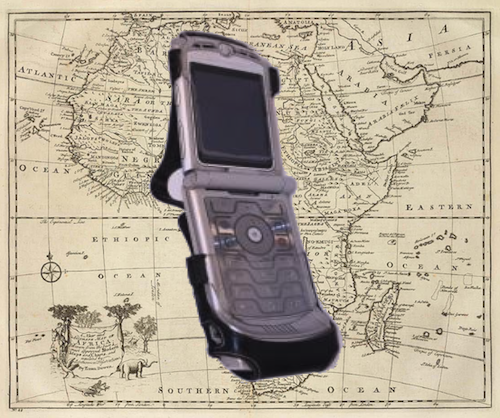Selling Cell Phones

I woke up waaay too early this morning to go see Alec Ross, the State Department's Senior Advisor for Innovation speaking on 21st Century Diplomacy, the Obama Administration's branding for their thinking about tech in foreign policy. Some have mocked the State Department for their rhetoric on the topic, but for a very, very large bureaucracy State has made some rapid shifts.
State, and Alec's remarks, really emphasie mobile tech. Ross observed that the number of mobile devices has increased 20% in the 18 months he's been in his job. It's now the case that a very large percentage of all humans on this planet are in areas with cell coverage.
Oh, and all of this happened on the back of private business. All these cell towers went up without a gazillion dollar World Bank-funded project or the work of foreign charities because it's profitable. Make that very profitable. Many of the richest businessmen in Africa (e.g., Mo Ibrahim) made their fortune in mobile networks, and Safaricom is one of the biggest firms in East Africa.
The virtuous cycle works because it's profitable for users, too. Alec cited statistics that average income for entrepreneurs with cellphones went up between 5 and 30% thanks to their new connectivity. When you put that in the context of your typical development program ambitions, it's truly staggering.
Much of this is old hat to international technologists, but the critical role of mobile is not obvious to many of us sitting amid land lines and broadband computers in a developed-world context. I'm impressed that the policy team from Secretary Clinton on down get it.
One last note on Apps4Africa from the talk: the total cost to the taxpayer was $25,000. The State Department probably pays more a year for toothpicks.
This is an astonishingly small amount of money to accomplish what they did; I hope they ramp it up across the globe.
